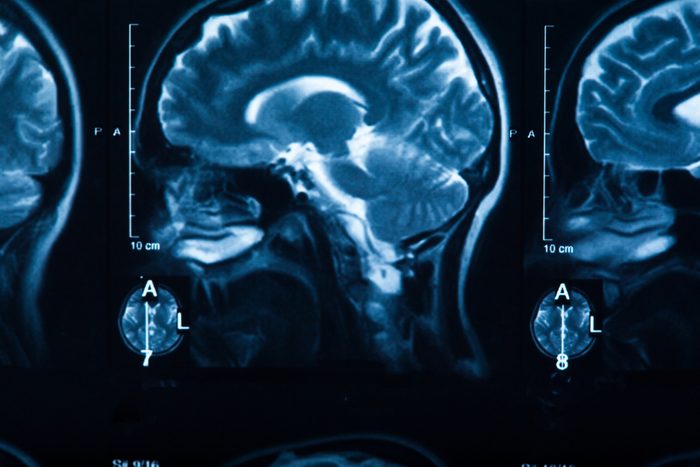What is inflammation?
“Anti-inflammatory” is listed as a benefit on everything from supplements (like the potentially up-and-coming cannabigerol, or CBG) to health foods, but what is inflammation and why is it such a bad thing in the first place? “Inflammation is not a bad thing, it’s simply the immune system’s response to injury and infection and is an integral part of how it heals, repairs and protects your body,” says John Esdaile, MD, MPH, rheumatologist and the scientific director of Arthritis Research Canada. The problems with inflammation come when your immune system overreacts, leading to a host of inflammation-related issues ranging from pain to serious autoimmune disorders like inflammatory arthritis and lupus, he says. (Here are some proven ways to fight inflammation.)

Acute inflammation
There are two types of inflammation. Acute inflammation is the body’s normal and complex reaction to a threat, whether bacteria, a burn, frostbite, or a sprain. “The body marshals its defenses to prevent injury or infection,” says Alan Mensch, MD, an internal medicine doctor in New York, senior vice president of medical affairs at Northwell’s Plainview Hospital, and an assistant professor at the Zucker School of Medicine. Signs of acute inflammation include swelling, dilated blood vessels, heat, redness, and pain. “Once the threat is gone, there are factors in the bloodstream that quiet things down again.”

Chronic inflammation
The second type is chronic inflammation and while it may not be as severe as the acute type, it can have serious long-lasting effects, Dr. Mensch says. It’s related to many illnesses, ranging from bursitis, colitis, phlebitis, and rhinitis to asthma, cardiac disease, liver disease, and possibly Alzheimer’s disease. (Check out the things that can slow down brain inflammation.) “It can be difficult to know whether you have chronic inflammation in your body,” he explains. “It depends on where and how chronic inflammation manifests itself. And it’s not the same in every person.”

Inflammation symptom: Weakness
“Inflammation causes pain and swelling which in turn can cause weakness,” Dr. Esdaile says. It may manifest as an overall feeling of weakness or you may feel weak in specific areas that are inflamed, like your back or hands, he says. So if you’re suddenly having a difficult time lifting things, grasping objects, or doing exercises that used to feel easy, you should talk to your doctor. “They can help you get the inflammation under control before it limits your strength and range of motion,” he says.

Inflammation symptom: Fatigue
“Tiredness is very commonly associated with chronic inflammation,” says Dr. Mensch. “It’s like you have the flu all the time.” An extensive body of research shows that people who feel chronically tired have higher markers for inflammation and pro-inflammatory compounds. (Find out other medical reasons that you might be tired all the time.)

Inflammation symptom: Joint pain
Rheumatoid arthritis (RA) is an autoimmune disorder and a type of arthritis characterized by inflammation, particularly in the joints, Dr. Esdaile says. In RA and other types of inflammatory arthritis, including lupus and ankylosing spondylitis, the immune system attacks the joints, causing swelling, redness, and pain, he says. These are chronic conditions and can cause permanent damage if not treated properly. Your doctor can order tests to look for inflammatory markers, he adds. (These are the foods that can make arthritis and joint inflammation worse.)

Inflammation symptom: Stomach problems
Bloating, diarrhea, cramping, constipation, and gassiness can be signs of Crohn’s disease, irritable bowel syndrome, food allergies, and other stomach ailments—and issues tied to chronic inflammation, says Alejandro Junger, MD, a cardiologist in Los Angeles, author of Clean Gut, and founder of Clean, a health and wellness company. Everyone experiences these symptoms occasionally, but if they’re ongoing, tell your doctor.

Inflammation symptom: Brain fog
One sneaky sign of inflammation is brain fog, memory problems, and feeling mentally slow, Dr. Junger says. Inflammation affects the brain just like every other body part, causing irritation and swelling, and can lead to cognitive problems, he explains. There’s also more serious conditions that can cause the brain and/or spinal cord to become inflamed.

Inflammation symptom: Watery eyes and runny nose
Allergies occur when your body’s immune system overreacts to something you eat or in your environment, causing a big inflammatory response. So allergy symptoms, including itchy eyes and a stuffy nose, stem from chronic inflammation. They are all critical signs that your body is inflamed and trying to tell you something is wrong, says Dr. Junger. (Don’t miss the 12 foods that make inflammation worse.)

Inflammation symptom: Red, itchy skin
“Chronic dermatitis could be a manifestation of chronic inflammation,” Dr. Mensch says. In fact, the word “dermatitis” means “inflammation of the skin.” In addition, skin diseases like psoriasis, eczema, and psoriatic arthritis, and skin conditions like acne, all stem from inflammation, he adds. If you have a rash that doesn’t go away or red, itchy dry skin patches, check with your doctor.

Inflammation symptom: Coughing and phlegm
Symptoms like a persistent cough, thickened mucus, wheezing, and chest tightening can all indicate chronic inflammation, Dr. Junger says. These symptoms occur in inflammatory conditions like allergies and asthma as well as lung conditions like bronchitis. “Bronchitis is an inflammation of the lining of the bronchial tubes,” Dr. Mensch explains.

Inflammation symptom: Gum trouble
Gingivitis is inflammation of the gums at the necks of the teeth. Periodontitis is inflammation affecting the bones and tissues of the teeth. Both may be signs of chronic inflammation. Gingivitis has also been linked to heart attack and stroke, says Dr. Mensch. Thorough teeth brushing, daily flossing, and twice-yearly cleanings by a dental hygienist can help alleviate gum problems. (Find out the early signs of gum disease you’re probably ignoring.)

Inflammation symptom: Depression
Mental health and inflammation go hand-in-hand for many people. Anxiety, stress, and depression can lead to symptoms of inflammation and inflammatory symptoms can cause those feelings, says Dr. Junger. This is particularly true for chronic inflammatory illnesses as dealing with chronic pain and conditions is directly linked to depression, anxiety, and other mental health issues. Treating mental health can help reduce the symptoms of inflammation, he says. “Don’t underestimate the mind-body connection,” he says.

Inflammation symptom: Belly fat
Not only is obesity a sign of systemic inflammation but it also increases your risk for getting inflammatory diseases and worsens the effects of the inflammation, Dr. Esdaile says. Carrying extra fat, particularly around the midsection, is a sign your body is stressed and inflammation is another reaction to stress. “Maintaining a healthy weight is one of the best things you can do to manage inflammation,” he says. “Eating a healthy, anti-inflammatory diet will go a long way in helping you lose weight and reducing other symptoms.”

How to detect chronic inflammation
There is a test that can pinpoint the problem: “C-reactive protein, or CRP, gives you a non-specific sense of inflammatory markers circulating through your body,” Dr. Mensch says. Other indicators include high levels of interleukin, a high erythrocyte sedimentation rate (ESR), a high white blood cell count, and a low albumin count, according to the Linus Pauling Institute at Oregon State University. Ask your doctor about these tests.

Reducing inflammation
Treating inflammation isn’t as simple as popping a pill, it takes a whole-body approach and often a significant change to your lifestyle. “It’s important to make sure you’re doing everything you can to reduce inflammation, including eating an anti-inflammatory diet, reducing stress, exercising, getting enough sleep, and taking proper medications (if necessary),” Dr. Esdaile says. “Inflammation makes everything harder and trying to push through it can make your symptoms worse.”
“Using adaptogens (herbs that reduce stress and inflammation), meditation, and intermittent fasting have been scientifically proven to reduce inflammation,” Dr. Junger adds.
